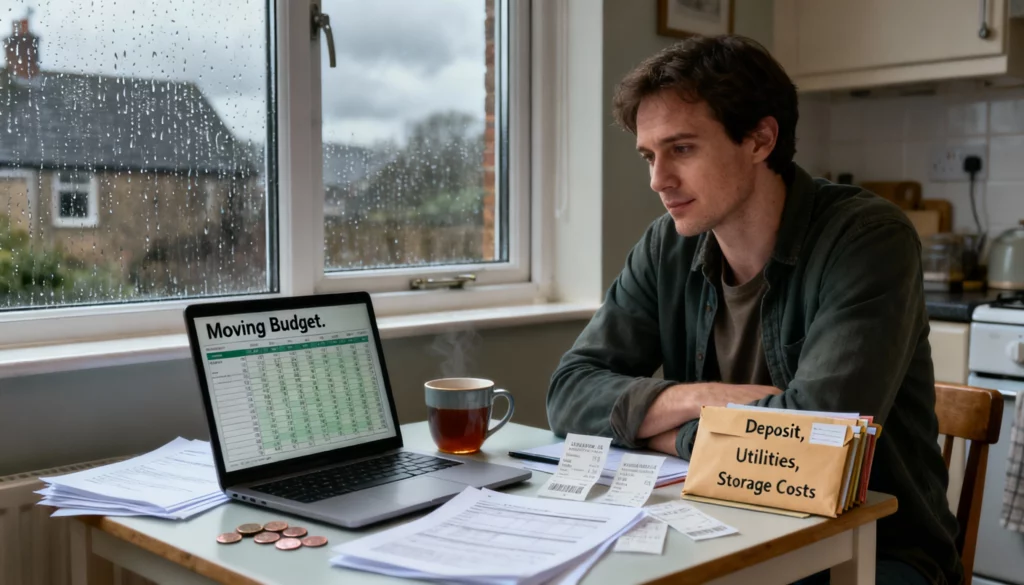The “Oh No” moment when you find out your landlord is selling. It usually starts with an email or text you weren’t expecting. For many tenants, that moment triggers panic. What happens when your landlord sells? Do you have to move straight away? Do your tenancy rights change overnight?
Cue the sinking feeling when you get that unexpected email or text saying: “Hi, just letting you know I’ve decided to sell the property…”
The truth is, you might not have control over the sale but you do have rights. And with a calm head, a plan, and some reliable information, you can handle this with confidence and dignity.
Here are seven ways to stay grounded when your landlord decides to sell:
1. Understand What Happens When Your Landlord Sells
First, take a breath! Your tenancy doesn’t just vanish because your landlord is selling.
If you’re in a fixed-term tenancy, your contract remains valid until it ends. The property will usually be sold “subject to tenancy,” meaning the buyer takes over as your new landlord. You continue paying rent and living there as before.
If you’re on a rolling or periodic tenancy, your landlord can give notice — but only following the proper legal process. In England, this generally means a Section 21 notice (at least two months’ notice) or a Section 8 notice (if there’s a breach).
You do not have to leave immediately, even if the landlord asks nicely or the property is listed for sale. For more tenancy advice on what happens when your landlord sells, visit the government website: GOV.UK – Private Renting: Tenancy Agreements
2. Know Your Rights as a Tenant (and Keep Everything in Writing)
This is where professionalism protects you.
You’re legally entitled to quiet enjoyment of your home which means you have the right to live there without unreasonable disturbance. If your contract doesn’t mention viewings, you can politely decline them or set limits that work for you.
Your deposit must remain protected in a government-approved scheme even if ownership changes hands, and the new landlord must update you once the sale completes.
Keep everything in writing, from text messages and emails to agreements. Clear communication can save you a world of stress later. If you’re concerned about what happens when your landlord sells, here are some helpful links:
3. Ask Questions and Get Clarity Early
This isn’t the time to sit quietly and hope for the best. Politely ask your landlord or letting agent the following questions about what happens when your landlord sells:
- When is the sale likely to complete?
- Will the new buyer keep existing tenants?
- What’s my exact notice period?
- Who will manage the property in the meantime?
Having answers early helps you plan instead of panic. Always follow up in an email confirming what was said as this keeps everything professional, traceable and verifiable.
4. Prepare Financially (and Logistically)
Even if you don’t need to move right now, it’s smart to prepare just in case. Moving unexpectedly can be expensive: new deposits, removal vans, rent overlap, and time off work. Start a “moving fund” as soon as you hear about the sale. Keep your tenancy agreement, deposit protection certificate, and correspondence neatly filed as they’ll come in handy if disputes arise.
If finances are tight, you might be eligible for support. For financial advice or questions about what happens when your landlord sells, have a look at Turn2Us – Help for Renters Facing Financial Stress.

5. Plan Ahead for a Potential Move
Once you know the sale is happening, don’t wait for official notice to start preparing your next step. When what happens when your landlord sells
- Declutter early: It’s easier to move when you know exactly what’s coming with you. Here’s a great article with practical tips on how to clear clutter like a pro.
- Research the local market: Rental competition in the UK is fierce right now so start shortlisting new areas or agencies sooner rather than later.
- Use self storage: Storing non-essentials or bulky furniture can make packing and property viewings easier while giving you breathing room during the transition.
Recommended: Space Centre Self Storage – Storage Rules & Guide
6. What Happens When Your Landlord Sells Unexpectedly? Stay Professional, It’s Nothing Personal
It’s perfectly normal to feel hurt, frustrated, or angry but staying polite helps far more than venting.
Remember: your landlord has the right to sell, but you have the right to be treated fairly. If estate agents request viewings, agree to times that work for you and keep your home presentable (without living like a show home).
Staying calm and courteous doesn’t just preserve your dignity, it builds goodwill that can earn you more flexibility during notice periods or reference checks later.
7. Keep Perspective … Change Isn’t Always Bad
Right now, it feels disruptive but this could also be a turning point. Maybe you’ll find a home that suits you better. Maybe you’ll finally downsize, move closer to work, or start fresh somewhere new.
Final Thoughts on What Happens When Your Landlord Sells
The main thing is not to panic. You’re protected by UK law, supported by charities like Shelter and Citizens Advice, and you have time to make informed decisions. And when life feels chaotic, remember: you can still stay organised, keep your essentials safe, and take one step at a time.
If you need a little extra space while you transition, Space Centre Self Storage is here to help with flexible, affordable storage units across Bristol, Stroud, Stonehouse, Gloucester & Cheltenham.
Because even when everything else feels uncertain, your stuff can stay safe and so can your sanity. If you found this information helpful or know of someone looking for advice on what happens when your landlord sells, please share this with them. Who knows, you could be helping someone in need?